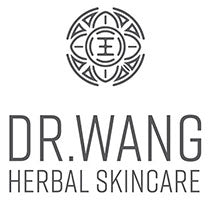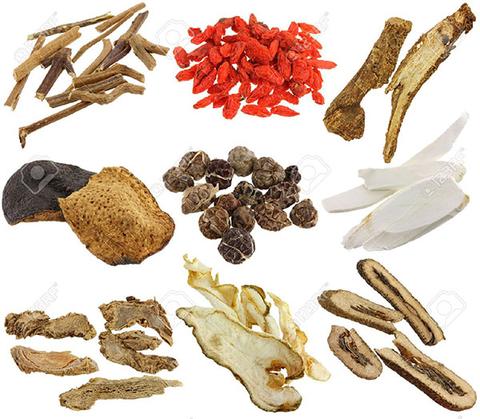In the past few months, we have received a number of inquiries from people who used our natural, herbal ointments on their sensitive and itchy skin. Many of the users who purchased our products had eczema, topical steroids withdrawal or Red Skin Syndrome, seborrheic dermatitis and other skin conditions. To our surprise, one of the most common questions was how did we create this natural skincare product. So we decided to have one of the co-Founders, Dr. Steven Q. Wang, to elaborate more about his discovery journey with his father, a licensed acupuncturist & herbalist in New York City.
Start of the Journey
I am a dermatologist and researcher at Memorial Sloan-Kettering Cancer Center. In the past 10 years, I have had many opportunities to care for sick patients with severe skin diseases and work with scientists and physicians around the world on research to improve skin health.
Three years ago, I started another gratifying and exciting research project. This time, it was with my father, who is a practicing acupuncturist and herbalist in New York City with over 40 years of clinical experience. We set out to discover an eczema ointment that would help to sooth itchy skin.
Our collaboration began after a serendipitous exchange in 2012. I showed my dad a scientific publication that used Chinese herbs to successfully treat psoriatic patients who failed a number of conventional Western medical treatments. To my great surprise, my dad read the article and said “this is not a new treatment; we used those same herbs when I was practicing in China.”
What started as a curiosity to learn about natural herbs quickly turned into full-scale research. Together, we conducted a meta-analysis on the use of natural herbs to treat eczema and psoriasis. After factoring in the patient size, duration of treatment, disease severity, and treatment outcome, we narrowed down our list of ingredients to over 50 herbs. Then, we conducted additional research on the active ingredients and biochemical properties of the actives in these selected herbs. In the end, backed by scientific evidence, we chose eight herbs for our eczema products.

Intelligent design for natural eczema ointment
Eczema is a chronic, inflammatory skin condition with a multi-factorial causes. It effects more than 40 millions Americans. Although many patients with eczema have inherent abnormalities in their skin barrier, persistent inflammation initiated by the dysregulated immune system further impairs the skin barrier, brings on severe itch, and even makes patients susceptible skin infections.
Hence, the goal in our design for our natural, herbal and non-steroidal skincare product, was to target the three “pillars”, or root causes, of eczema – inflammation, infection and poor skin barrier.
The 8 herbs were chosen because of their strong anti-inflammatory and anti-bacterial properties. To rebuild and enhance skin barriers, we also used
- castor oil
- olive oil
- hectorite – a natural clay material rich with a range of minerals
- ceramide -- a waxy lipid essential in maintaining healthy skin barrier
- Vitamin E – a natural, lipid soluble antioxidant
Clinical outcomes eczema study
To test the efficacy of our natural, herbal and non-steroidal ointment, we conducted a small clinical trial on people with mild to moderate eczema. After an average of 6 weeks of application, 81% of the eczema patients had better than moderate improvement in their skin condition. They showed significant improvement in the scaly, dry and cracked appearance in their skin. The clinical result validated our initial hypothesis that improvement of eczematous skin can be achieved by reducing inflammation, preventing infection, and rebuilding skin barriers.
Our initial clinical results also yielded a surprising finding. Our natural, herbal and non-steroidal ointment also provided itch relief for many of the subjects. Controlling itch is a valuable desire for many eczema patients. Many people with eczema complain of severe itch, which prompts them to scratch. Frequent scratching can impair skin barrier and trigger inflammation and infection.
We were so excited about this observation. If we could stop or reduce the severity of itch, we could prevent the scratch-itch cycle. We decided to carry out another clinical study with 14 volunteers. Three patients had recent insect bites (<3 days old), four were diagnosed with psoriasis, and seven with eczema. Each volunteer reported their itch level from 1 to 10 (e.g., 10 as most severe) at baseline, 5 minutes and 2 hours later. The trial showed an average of 61% reduction in itch score only 5 minutes after application of the natural, herbal, and non-steroidal ointment. The anti-itch response lasted at least 2 hours for majority of the subjects.
Launching of Dr. Wang Herbal Skincare – Eczema Ointment

The research over the past three years have been especially rewarding. Although my father and I have been talking to each other about medicine and patient care for over 20 years, it is the first time we actually collaborated on a research project. It allowed us to share and bring forth the best of Eastern and Western medicine. Second, unlike many of my prior research that ended with a scientific publication in a peer reviewed medical journal or a series of lectures, this time we actually created a physical product that can bring comfort and relief for patients. This was not an abstract idea that only existed in a publication. It was something that one could see, touch, feel, smell and apply to the skin.
Largely encouraged and prompted by our patients who used the product, my father and I decided to launch the natural, herbal and non-steroidal ointment under the name of Dr. Wang Herbal Skincare in January 2016. As physicians, we strive to deliver effective, holistic, innovative and compassionate care to our patients on daily basis. At Dr. Wang Herbal Skincare, our philosophy resonates from this core belief as physicians. We hope to create effective and innovative skincare products for people with eczema and many other skin conditions. We plan to do so by combining the time-honored traditions of Eastern medicine with the insights of Western medicine and modern science.






